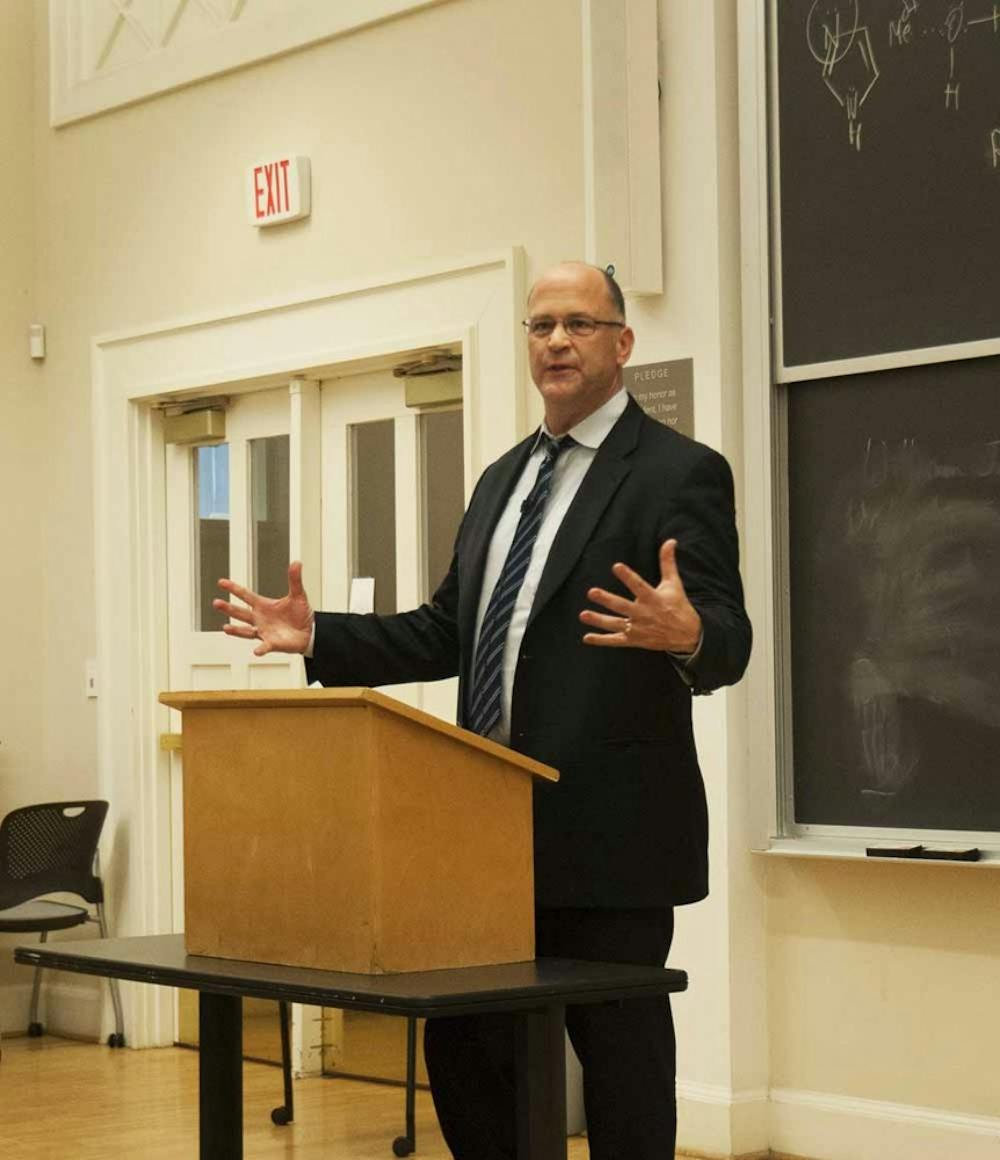Jerry White, a Nobel Peace Prize laureate, led a lecture Tuesday sponsored by the University’s Institute for Humanities and Global Cultures.
White has served as the U.S. Deputy Assistant Secretary of State as well as the Executive Director of the Global Covenant of Religions, Inc. Peter Ochs, the Edgar M. Bronfman Prof. of modern Judaic studies, hosted the event alongside second-year College student Lital Firestone.
White offered the lecture as a sampler of the issues to be covered in the class he will be teaching in the upcoming months as a professor of practice at the University. This summer and fall, Ochs and White will be co-teaching a Global Studies course entitled “Religion, Violence and Strategy.”
The lecture focused on three realms of the global environment White identified as needing rehabilitation: personal, governmental and religious. In his discussion of personal growth and development, White described a very traumatic experience which he then used as a frame for the wider categories of the governmental and religious sectors of the world.
When White was twenty years old, he studied abroad in Israel and was hiking through Golan Heights when he stepped on a landmine. As a result, he lost most of his leg below the knee and now uses a prosthetic. The trauma he identified as a result of the incident is useful in examining the traumas of religious violence and governmental inefficiencies, he said.
“[Trauma is] a before and after moment when life is never the same,” he said. “That’s where you learn resilience.”
White proposed three strategies to effectively battle the traumas of inefficient and impersonal government bureaucracy systems — speeding up conflict analysis, further developing strategic planning and fostering relationships with local partners. He said effective, systemic change should always accompany problem solving and strategy-building.
“Strategy is more art than science,” White said. “[It is an] art of creating power and influence for your desired outcome during periods of risk.”
The third trauma — and White’s proffered solution for it — involved what he called the “existential threat” of religion and the interplay between joy, devotion and the life or death issues which arise in all world religions. White said his goal is to work towards an interfaith treaty or covenant between all religions wherein “the dignity of difference” is promoted and celebrated. He said his target audience is the middle of the “bell curve” of all the religious population in the world in order to promote stability and peace in justice, as opposed to the violence and instability of extremist religious groups such as the Islamic State (ISIS).
“We want to invest in the resilience of religion and anything that works at a community based level that will stabilize and therefore become human resilience and antibodies against violence,” White said.
Although White said he encourages the implementation of this “global covenant”, he said he recognizes that something must be done to counter the ISIS threat and all violent threats of extremists who kill in the name of God. The real problem, White said, is there is no existing strategy in place to resist ISIS and others like them.
“A campaign to kill or destroy or defeat ISIS is not working because it is not a strategy that could work,” he said.
White said the solution is a collective one, requiring the skills and efforts of diplomats, religious leaders and civil society.
“I’m here to promote the conversation and ask and invite religious analysis, study and scholarship, and get academic institutions involved in the conversation,” White said. “How can you work and dialogue within this sphere as well as in society to create better and stronger policy to protect humanity?”







